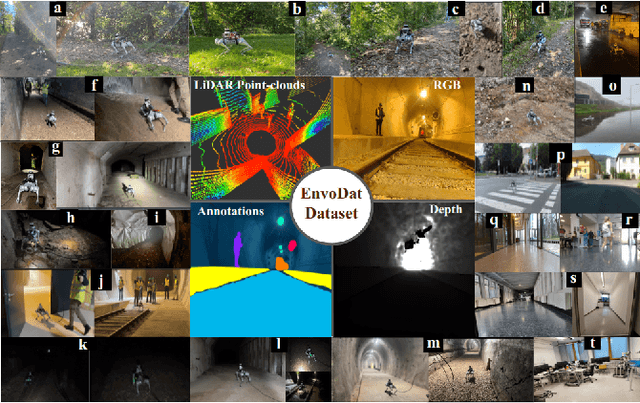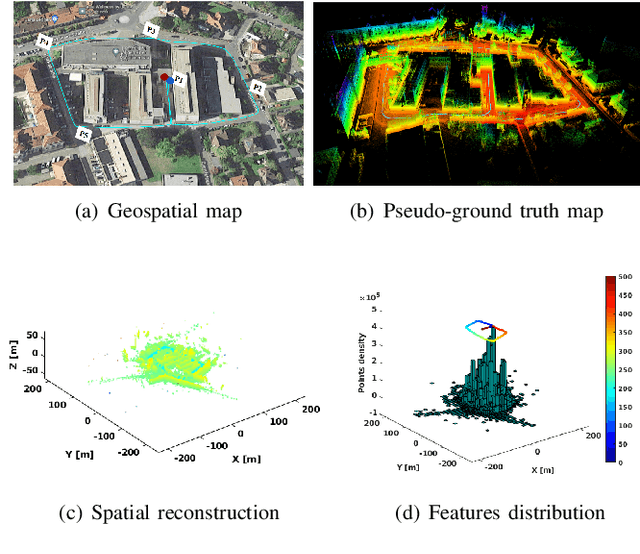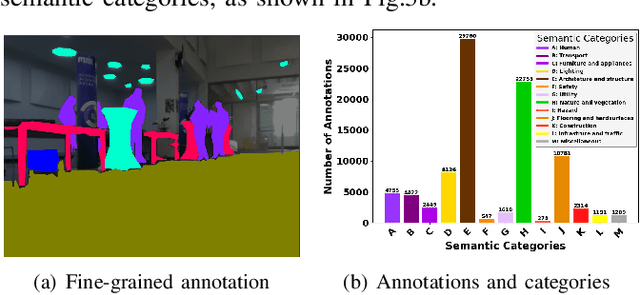Robert Galler
EnvoDat: A Large-Scale Multisensory Dataset for Robotic Spatial Awareness and Semantic Reasoning in Heterogeneous Environments
Oct 29, 2024



Abstract:To ensure the efficiency of robot autonomy under diverse real-world conditions, a high-quality heterogeneous dataset is essential to benchmark the operating algorithms' performance and robustness. Current benchmarks predominantly focus on urban terrains, specifically for on-road autonomous driving, leaving multi-degraded, densely vegetated, dynamic and feature-sparse environments, such as underground tunnels, natural fields, and modern indoor spaces underrepresented. To fill this gap, we introduce EnvoDat, a large-scale, multi-modal dataset collected in diverse environments and conditions, including high illumination, fog, rain, and zero visibility at different times of the day. Overall, EnvoDat contains 26 sequences from 13 scenes, 10 sensing modalities, over 1.9TB of data, and over 89K fine-grained polygon-based annotations for more than 82 object and terrain classes. We post-processed EnvoDat in different formats that support benchmarking SLAM and supervised learning algorithms, and fine-tuning multimodal vision models. With EnvoDat, we contribute to environment-resilient robotic autonomy in areas where the conditions are extremely challenging. The datasets and other relevant resources can be accessed through https://linusnep.github.io/EnvoDat/.
 Add to Chrome
Add to Chrome Add to Firefox
Add to Firefox Add to Edge
Add to Edge